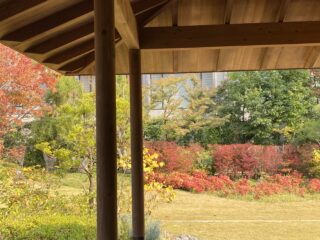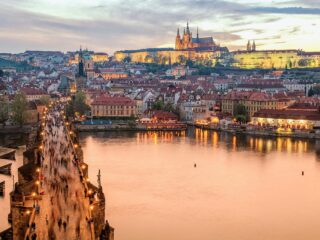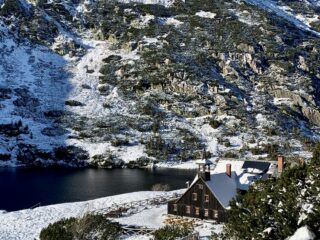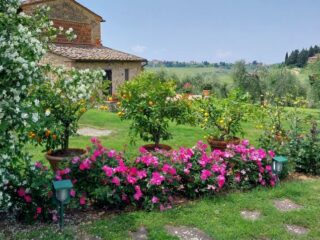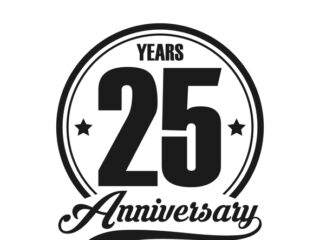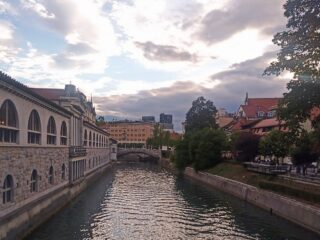by Alex Burack

I have found that getting stuck is a very important part of the creative process. That when you’re stuck, your subconscious mind is catalyzed and you actually do a lot of very good thinking that you wouldn’t have done if you weren’t stuck.
Listen to Alan Lightman on “getting stuck”
AB: To you, how are the scientific process and the writing process similar?
AL: I think the creative moment is very similar, the feeling in the creative moment. That feeling of losing all sense of who you are and where you are; losing all sense of your body, losing all sense of your ego and just being in that pure state of seeing and creating. I think that’s very, very similar in the sciences and the arts and I’ve certainly experienced a very, very similar feeling in the creative state as both a scientist and a fiction writer. I think the process of discovery is very similar, where first, you’ve done your homework and you have what I call a “prepared mind” and then getting stuck on some problem, then having a shift in perspective, and then the resolution of the problem. That sequence of events and the process of discovery is very similar in the sciences and the arts. The getting stuck is a very important part of the process. I know younger people and students often feel that if they get stuck on something they’re working on, that it’s time to give up; that they don’t have what it takes, they don’t have the talent, they don’t have the patience, whatever. But I have found that getting stuck is a very important part of the creative process. That when you’re stuck, your subconscious mind is catalyzed and you actually do a lot of very good thinking that you wouldn’t have done if you weren’t stuck. I recently published a book about a couple of dozen great discoveries in science in the twentieth century, and I found that in almost all of them, the scientist went through a period of being stuck in getting to their discovery. I certainly know that writers get stuck all the time. I’ve been stuck many times as a writer; not able to get a character right, not able to hear a character to talk to me. It’s just an important part of the process.
AL: I think that artists and scientists are also similar in that they’re both seeking truth. It’s a different kind of truth: for the scientist, it’s truth in the physical world, truth in the world of mass and force, atoms and DNA. For the artist, it’s emotional truth. It’s truth in the world of the heart and the mind. Both kinds of truth are important; they complement each other. I think a writer’s characters or stories cannot be proved definitively wrong the way the Theory of Relativity can, but they can ring false with the reader; they can disagree with the reader’s accumulated life experience and therefore lose their power. So I think both the scientist and the writer are testing their work against experiment; for the scientist, it’s physical experiments, and for the writer – the writer is testing his work against the life experiences of the reader, and readers bring a lot to a book: they bring their own life experiences, their knowledge of how people behave in different situations.
AB: Can you tell us a little bit about your new book, which I believe is due out this coming fall?
AL: The new book is titled Ghost, and I think it’s going to be published in November. Like my other books, it’s something that’s been brewing in me for years. It’s about a man who sees a ghost – or he thinks he sees a ghost – he sees something that he doesn’t understand. He doesn’t know exactly whether it’s a ghost, but he sees something that’s definitely supernatural. He believes that he sees this, and it throws his world upside down. Because he doesn’t believe in ghosts; he doesn’t believe in the supernatural, and yet he has this metaphysical experience. And it makes him question the world, everything he knows, question himself. And all his relationships change as a result of this metaphysical experience; his relationship with his girlfriend, with his ex-wife. And the book explores the dividing line between the supernatural world and the sort of scientific world – skepticism and faith, religion and science. Those dichotomies are explored in the book.
AB: In what ways was this novel a new challenge for you as a writer?
AL: Well certainly the subject matter is not something that I’ve written about before. I think that as a writer, I spent a lot more time trying to develop my characters in this book than I have in the past. It’s still not my strength. Characterization is still something I have a lot to learn about, but I think that my characters are better in this book than they have been before. So that was sort of new ground for me as a writer, in terms of the craft. But like The Diagnosis, it’s a book that operates on a large stage: it takes on large social issues – because the debate about science verses religion is very much a national debate. So I wanted to explore that issue without having any prejudice. I think I give the skeptics and the believers an even-handed treatment in the book.
AB: Was it important for you to be even-handed? Is that something you concentrated on?
AL: It was very important to be even-handed about it because I do respect religious views and people who have faith. I’m an Atheist myself, but I have full respect for the other viewpoint. I think that this book that Richard Dawkins came out with recently, The God Delusion, which got a huge amount press and sort of dismisses religion wholesale, is just shortsighted. Religion has been with us for thousands of years, and it evidently speaks to a great need in the human psyche. Whether God exists or doesn’t exist, and of course there’s no way that we’ll ever be able to prove that one way or another – science certainly can’t prove it one way or the other – the set of beliefs that go along with religion are clearly something very deep in the psyche of Homo sapiens. So a person who just dismisses all of that is just out of touch.
I wanted to write a novel – of course I started writing this novel long before Richard Dawkins book came out – but I wanted to explore the middle ground and give a more nuanced view of this dichotomy between faith and belief or science and religion; the different world views, and explore them. Why do people believe what they believe? Why are beliefs so entrenched often? You know, if you take something like belief in God, a person either believes or doesn’t believe, and there’s no amount of evidence that’s going to convince them to change their belief. It’s fascinating that there are certain beliefs of that type that are just really central to us. That’s what I wanted to explore; that’s what the new book is about.
AB: Do you feel that in the process of writing this novel, you have gained a better idea of what creates such a strong emotional conviction in people?
AL: Yea, I think I have. This metaphysical experience that my main character had, I really experienced that with him. I’ve never had an experience like that myself, but I sort of lived it with him. I sort of felt what it had done to him, and how it became a very personal experience – this apparition that he saw, this supernatural thing – no one else saw it, and it only happened once to him. So it was very, very personal. I think that a lot of people’s faith, either belief in the supernatural, belief in God, belief in the metaphysical – I think religion falls within a larger category you could call the metaphysical – I think that often that it’s the very personal experiences that causes people to have their beliefs. And that’s a very powerful thing: when you experience something yourself, when you’re alone, that’s a powerful thing. So I think I have a better understanding of the power of the personal metaphysical experience having written the book.
AB: Do you think that you have changed permanently through the course of writing the book? Have you gained a broader understanding of yourself through that exploration?
AL: (nodding) Yea, I do, and I think that’s a very good question and a very good comment because I think that writers are changed in the process of their writing, and I imagine that any serious artist is as well in any of the arts. I believe that all the arts are about self exploration; whether you’re a painter, an actor, a musician, a photographer possibly – if you’re an artistic photographer, a novelist, that what you are doing is you are going deep into yourself and finding – going to the boundary between what’s known and what’s not known in yourself, and setting up camp at that boundary and trying to live there for a while.
Alex Burack is a writer and photographer who lives in Cambridge, MA. He is also the editor of digitalcamerainfo.com.

